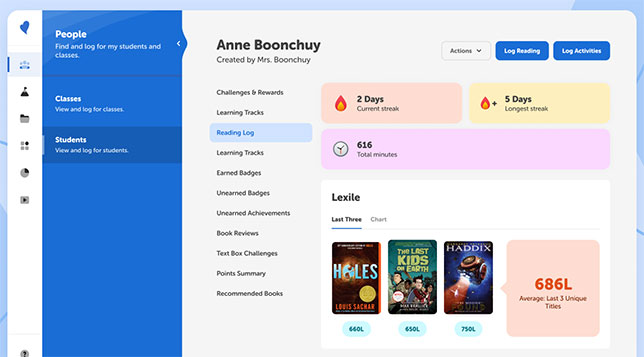Lexile Insights for Teachers Aims to Help Understand Student Free Choice Reading
- By Kate Lucariello
- 11/16/23
Reading platform company Beanstack has announced a new feature, "Lexile Insights for Teachers," to give them data and insights for a personalized approach to their students' free choice reading.
The Lexile Framework measures reading ability and text complexity of reading materials and gives teachers the ability to match reading choices with student ability levels. The framework also measures reading growth.

The new addition to the Beanstack's platform:
-
Tracks reading progress in individual student logs over time;
-
Analyzes the last three logged books and determines an average Lexile level;
-
Provides a chart of the average Lexile levels of logged books each week;
-
Identifies patterns and trends in student reading habits;
-
Allows teachers to customize instruction, reading assignments, and book recommendations to individual student needs;
-
Includes Lexile data for over 327,000 books in the Beanstack library;
-
Restricts Lexile viewing access to teachers and administrators only, to help encourage free choice reading; and
-
Gives teachers data to share with parents during conferences.
Beanstack noted that logged books without Lexile levels will not be included in calculating a student's average Lexile level.
For more information about Lexile Insights for Teachers, visit this Beanstack blog page.
About the Author
Kate Lucariello is a former newspaper editor, EAST Lab high school teacher and college English teacher.